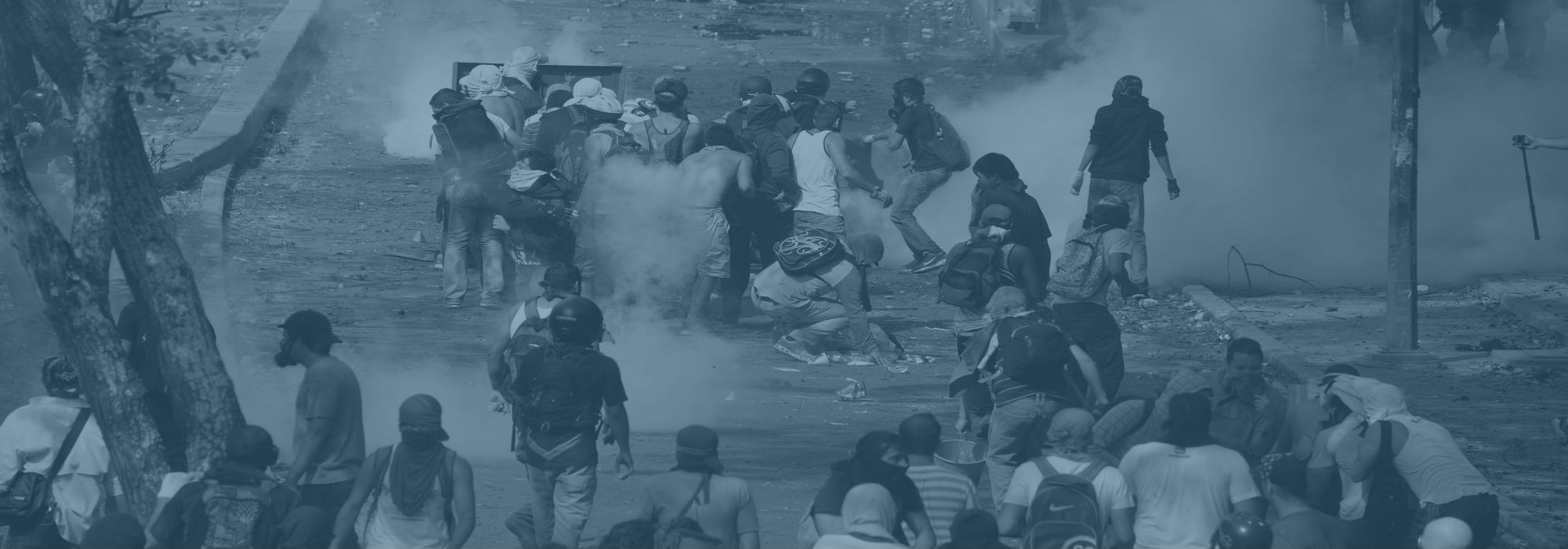By George Friedman
On Tuesday, in the mid-afternoon, I received information from a contact in Caracas that electrified me. He told me that there would be an attempt by unidentified opposition groups in Venezuela to overthrow President Nicolás Maduro’s government. He said that they were well armed, that the government supporters were demoralized and that this would be the end of the Maduro regime.
As you might guess, this focused my mind. But the information came from a contact in Venezuela, where rumors are more common than toilet paper on the grocery shelf. The entire problem with sources is that they are frequently wrong. Sometimes they are lying. Sometimes they are misinformed. Sometimes they are just repeating what they have heard. Sometimes they are working for the government, which wants to spread disinformation to justify a crackdown. Sometimes the source is just stupid. In the management of a source, the rule is always to meet him. I have no idea what this achieves. I once had a girlfriend who I thought I really knew and loved, who turned out to be taking on the entire baseball team. Imagine my surprise. She lied and I believed her. There are handlers who claim to be able to spot a liar over coffee. Nonsense. You can be lied to in person or on Skype with equal effectiveness.
Still, I had a report from a source on the ground who had told me the truth more often than not. I had to respond. We have a rule at Geopolitical Futures: first get excited; then calm down. Lt. Kermit Tyler was a watch officer who got a report from a radar operator that a large number of planes were approaching. His response was, “well, never mind.” That happened on Dec. 7, 1941. Tyler did not get excited. He decided it wasn’t anything. None of us want to be Tyler, so my rule is: first get excited. There will be plenty of time to be calm later. There is a serious point here. Intelligence requires adrenaline. It makes you overreact, but in overreacting you are more likely to catch the unexpected than if you stay relaxed figuring you will get excited when you have more information. You have to will yourself to have adrenaline.
Since our business is about publishing, the first question in my mind was: should we publish this? Publish what? A guy I used to drink heavily with in Caracas years ago told me there was going to be a coup. Why would he tell me if he actually knew? So I held back and asked my Latin America analyst if she saw anything happening. She said the opposition was going to stage big demonstrations in Caracas the next day. I choked. Then she said that this was a widely known event. I said what if they bought weapons and took over the government. She said that would be different. Good point, I’m glad I have her.
So, we watched and waited. Around 6 p.m. we got reports that a large number of people were being arrested in Caracas, and the government was using helicopters, drones and armored personnel carriers in the crackdown. There was going to be a pre-rally rally shortly, in which one of the leaders of the opposition, Henrique Capriles, was going to speak. Now, we had a report of an armed attack on the government. We had a massive police crackdown underway. We heard 1,200 had been detained, an unspecified number of guns had been seized and, reported later, four armed men had been killed.
Suddenly, it went from street gossip to something serious. There were three possibilities. The government also had this intelligence (I figured if I knew, they knew) and was carrying out a pre-emptive strike. Or, the government had planted the rumor to justify a disruption of the demonstrations. Or, the rumor was a fantasy in my source’s head, and the Maduro government was just doing Maduro stuff. It was definitely one of these three things, or something else.
At this point, we announced that sleep had been canceled. What’s nice about Venezuela, from our point of view, is that it is in the same time zone as the eastern U.S. In our business, this was a rare godsend. There are 168 hours in a week. Americans work 40 hours a week, theoretically (I like to get 80 out of my staff for the same price, if possible). Sticking with 40 though, the chances of things happening in the other 128 hours are pretty high. Particularly since most of what is noteworthy for us happens in the Eastern Hemisphere. This makes for sleepless nights, lost weekends, cancelled anniversaries and a high divorce rate. This was happening in Venezuela, so it meant that we could have 24-hour coverage, including our staff in Europe. So, we divided the hours, handed out assignments, posed questions and waited, knowing that Venezuelans have late dinner and attackers at night would be very exposed, it was likely to be a quiet night. Anti-government attackers would need to move under the cover of a crowd. It would happen in the morning demonstration.
In the meantime, we wanted to know where Capriles was. Capriles is an interesting figure in the opposition. He both opposes Maduro but envisions a more orderly transition than the others. He has emerged as the most credible alternative to Maduro, consciously trying to bridge the gap between the government and the opposition. He is also perceived as the most competent. Many of the other opposition leaders are as likely to fight each other as Maduro. There was a coup against former Venezuelan President Hugo Chávez in 2002. Chávez had been forcibly taken to an island. Then, the coupsters started arguing with each other over who got what Cabinet post, Chávez got on the plane that (amazingly) was not locked down and his pilot flew him home. Whatever you think of coups, that really was incompetent. So among these guys, Capriles is a star.
We needed to know if he had been arrested in the government sweep. For around 12 hours he didn’t tweet anything on Twitter. We have reached the point where a tweet is taken as proof of life. One person had retweeted something from him. Capriles being arrested, following the crackdown, would indicate that the Maduro government was extraordinarily concerned. So, when we awoke yesterday morning, the first question I asked was whether anyone had heard from Capriles. The demonstration was scheduled to begin at 9 a.m. local time. At 8:40 a.m., Capriles gave a live address on the internet. Then, 9 a.m. had come, and there was no sign of a demonstration, let alone a revolution. Our expert explained that in Venezuela, when you schedule something for 9, that means that about that time you should start thinking about leaving your house. So, starting late meant nothing.
At this point, nothing was really happening. Our source referred to armed rebellion. The government conducted a massive sweep, finding weapons, with four killed. The morning dawned, and nothing. The demonstration started, and Capriles made an appearance. There were police with riot gear blocking off most streets to contain the demonstrators. The local subway station was closed. At one point, tear gas was used. In other words, it’s a large but routine demonstration followed by people going home.
You received no notice of this from us because, as excited as we were – a professional requirement – there was nothing to report. Maybe there had been some plan for violence, but the government pre-empted it. Or maybe there had never been a plan. We don’t know. And in a way it doesn’t matter. The Maduro government is still there. Contrary to all expectations, he remains in office, not because he is loved, but because the opposition can’t find a way to unite and force regime change. Or, to put it more simply, Maduro was legally elected president by the Venezuelan people. It will take a coup against the constitution to force him out. And the opposition is not great at coups.
I hated wasting an entire day on something that didn’t happen. So, I thought I’d give you a sense of how we work and thereby purge myself of all thoughts of Venezuela. So, I have told you this tale. But there is a point to be made that is important, both in terms of us and in terms of governments.
Intelligence analysis is a murky business. Intelligence is built around sources, but some sources frankly confuse as much as they clarify. Most intelligence organizations insist on source-based analysis. In other words, if someone tells you something, it is more valuable than if you read it in a newspaper. They used to say that the KGB didn’t trust anything they didn’t steal. If it didn’t come from a super-secret, absolutely reliable, never-lie-to-me source, it was dismissed. People in the field get promoted by the number and quality of sources they recruit. So, they are always inflating any source’s value. Analysts get promoted by how accurately they forecast events, but they are tied to sources that were recruited by some operator who doesn’t even speak the local language.
By depending on sources, their error rate can soar. In a world where information is leaking through the walls, the challenge is not to find a source, but to find a source who only talks to you. What we focus on is our model: our forecasts and net assessments that let us forecast. The most important events cannot be revealed by a source. No source knew the Soviet Union or the Shah of Iran were going to fall. No one source knew where China was going or that the European Union would come apart. The most important things do not rely on secrets, but on believing and understanding what you see right in front of your eyes. And then building a model of how the future will look.
Talking to people in the country can never hurt, so long as you remember that Mikhail Gorbachev was the last to know the Soviet Union was falling. As far as sources go, I like smart people native to a country who know a lot of people. I don’t trust them, but they show me a great time when I visit the country. They are no worse than paid sources, and a bottle of really good scotch plus the occasional tip is enough. The tip will be the same as what they tell me. Sort of something.
If you want to know who the mistress of a country’s president is, sources are great. If you want to know what will happen in Venezuela, I doubt that anyone knows. Our model says that the situation can go on like this for a very long time. Hey, we’ve been right so far.







